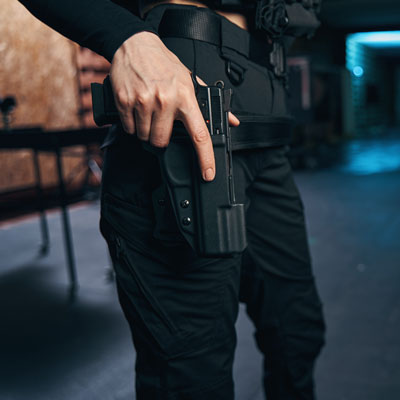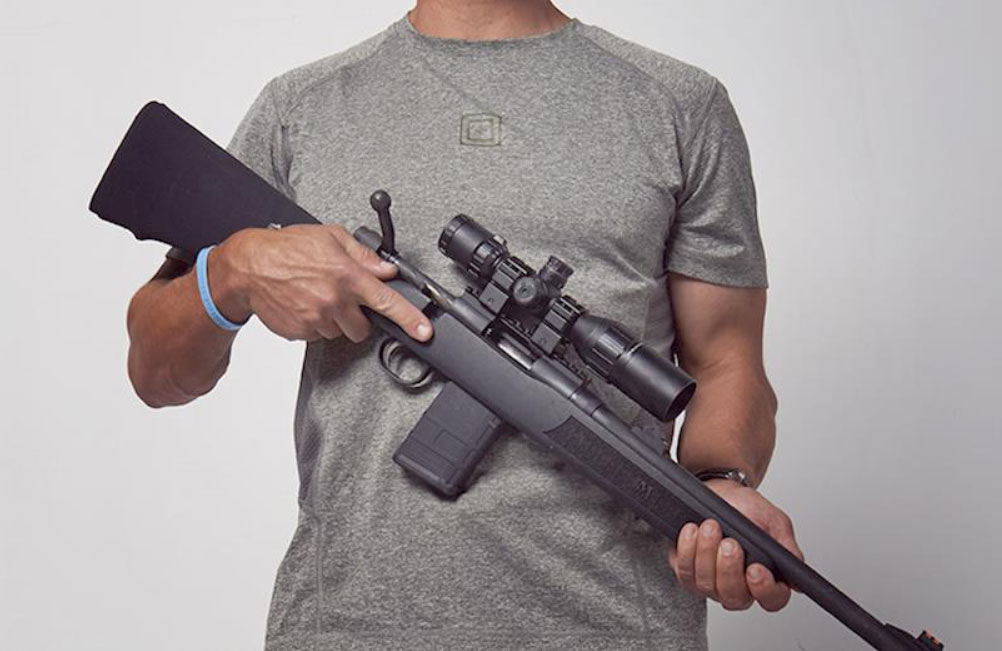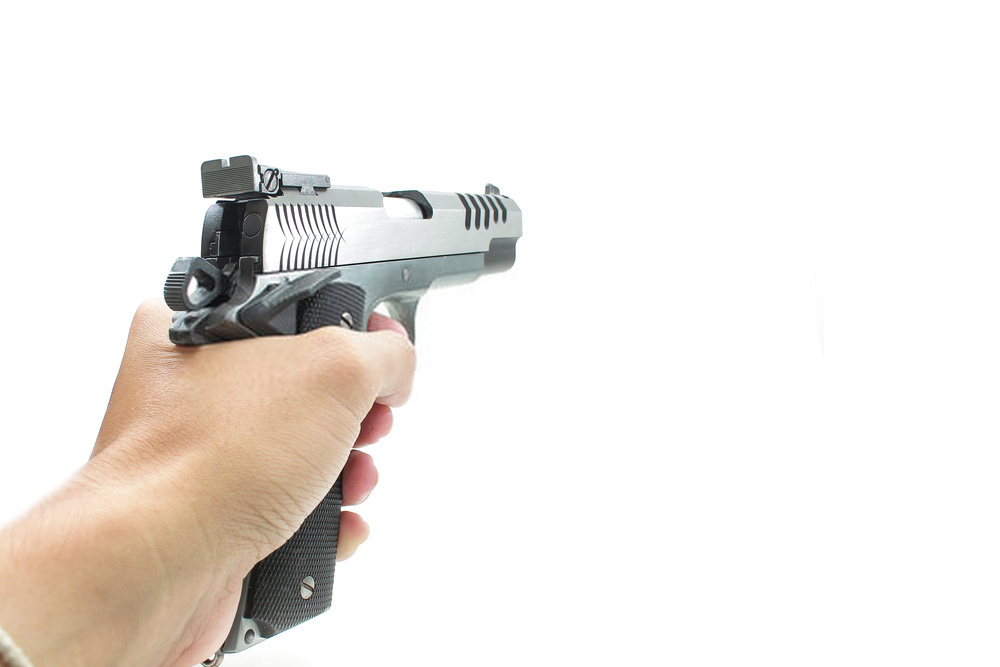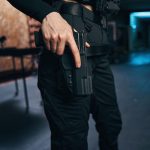Be at least 21 years old (an applicant between 18 and 21 years of age may only be issued a wear and carry permit to possess a regulated firearm required for employment);
Have successfully completed required firearms training, within 2 years, prior to submitting an application or meet a training exemption;
Not have been convicted of a felony or a misdemeanor for which a sentence of imprisonment for more than 1 year has been imposed; or convicted of a criminal offense for which you could have been sentenced to more than 2 years incarceration (or has been pardoned or granted relief under 19 U.S.C. Section 925(c));
Not have been convicted of a crime involving the possession, use, or distribution of a controlled dangerous substance;
Not be presently an alcoholic, addict, or habitual user of a controlled dangerous substance unless under legitimate medical direction;
If under age 30, have no adjudications of delinquency in a juvenile court for any act that would be a felony or “crime of violence” if committed by an adult or for any misdemeanor carrying a statutory penalty of 2 years or more, and have never been committed to any detention, training or correctional institution for more than 1 year as a juvenile;
Based on an investigation, not have exhibited a propensity for violence or instability that may reasonably render the person’s possession of a handgun a danger to the person or others;
Have a good and substantial reason to wear, carry, or transport a handgun, such as finding that the permit is necessary as a reasonable precaution against danger; and
Meet federal law requirements.
Medical Marijuana:
Federal law prohibits medical marijuana users from possessing or buying firearms and ammunition — even if state law allows the drug’s use. An individual can’t have both licenses. Under federal law, any marijuana user is an unlawful user of a controlled substance. The 9th Circuit Court of Appeals has upheld this rule. Marijuana in any form is illegal under federal law. Users of marijuana are prohibited persons.
In Maryland, the Secretary of the Maryland State Police must deny a transfer of a “regulated firearm” (generally meaning a handgun or an assault weapon)1 if the prospective purchaser, lessee, or transferee:2
Has been convicted of a crime of violence;3
Has been convicted of any Maryland-classified felony;
Has been convicted of conspiracy to commit a felony;
Has been convicted of a common law crime for which the person received a term of imprisonment for more than two years;
Has been convicted of any Maryland-classified misdemeanor that carries a statutory penalty of more than two years;
Is a fugitive from justice;
Is a habitual drunkard;
Is an addict or habitual user of any controlled dangerous substance;
Is suffering from a mental disorder4 and has a history of violent behavior, unless the purchaser, lessee, or transferee possesses a physician’s certificate stating that he or she is capable of possessing a regulated firearm without undue danger to himself, herself or others;
Has been confined for more than 30 consecutive days to a facility5 unless the purchaser, lessee, or transferee possesses a physician’s certificate stating that he or she is capable of possessing a regulated firearm without undue danger to himself, herself or others;
Is visibly under the influence of alcohol or drugs;
Is under 21 years of age;
Is a participant in a “straw purchase;”6
Is subject to a “non ex parte civil protective order;”7
If under the age of 30 years at the time of the transaction, has been adjudicated delinquent by a juvenile court for an act that would be a disqualifying crime if committed by an adult; or
Has not completed a certified firearms safety training course, required to obtain a regulated firearm.8
Maryland also explicitly prohibits any person from possessing a regulated firearm or a standard rifle or shotgun if that person:15
Has been convicted of a crime of violence, as defined;16
Has been convicted of specified crimes related to controlled substances under Maryland law;17
Has been convicted of an offense under the laws of another state or the United States that would constitute a “crime of violence” or one of the controlled substance-related crimes listed above if committed in Maryland;
Has been convicted of a disqualifying crime;18
Has been convicted of a violation classified as a crime under common law and received a term of imprisonment of more than two years;
Is a fugitive from justice;
Is a habitual drunkard;
Is addicted to or a habitual user of a controlled dangerous substance;
Suffers from a mental disorder as defined by state law and has a history of violent behavior against himself, herself or another person;
Has been found incompetent to stand trial under state law;
Has been found “not criminally responsible” under state law;
Has been voluntarily admitted for more than 30 consecutive days to a mental health facility as defined under state law;19
Has been involuntarily committed to a mental health facility as defined under state law;
Is under the protection of a guardian appointed by a court,20 except for cases in which the appointment of a guardian is solely as a result of a physical disability;
Is a respondent against whom: 1) a current non ex parte civil protective order has been entered;21 or 2) an order for protection22 has been issued by a court of another state or a Native American tribe and is in effect; or
If under age 30 at the time of possession, has been adjudicated delinquent by a juvenile court for an act that would be a disqualifying crime if committed by an adult.
Utah law provides that, subject to certain limited exceptions, no person shall possess a firearm if he or she:
Is a Category I restricted person, meaning a person who:
Has been convicted of any violent felony;1
Is on probation or parole for any felony;
Is on parole from a “secure facility”;2 or
Within the last 10 years has been adjudicated delinquent for an offense which if committed by an adult would have been a violent felony; or
Is an alien who is illegally or unlawfully in the U.S.;
Is a Category II restricted person, meaning a person who:
Has been convicted of a felony or, within the last seven years has been adjudicated delinquent for an offense which if committed by an adult would have been a felony;3
Is an unlawful user of a controlled substance;4
Is in possession of a dangerous weapon and is knowingly and intentionally in unlawful possession of a Schedule I or II controlled substance;
Has been found not guilty by reason of insanity of, or has been found mentally incompetent to stand trial for, a felony offense;
Has been adjudicated mentally defective as provided in the Brady Handgun Violence Prevention Act, codified at 18 U.S.C. § 921 et seq. or has been committed to a mental institution;
Has been dishonorably discharged from the armed forces;
Has renounced one’s citizenship after having been a citizen of the U.S.;
Is subject to a final domestic violence protective order if the order includes a finding that:
The respondent or defendant represents a credible threat to the physical safety of an intimate partner as defined by federal law; or
Explicitly prohibits the use, attempted use, or threatened use of physical force that would reasonably be expected to cause bodily harm against an intimate partner or the child of an intimate partner; or
Has been convicted of a domestic violence misdemeanor.5







